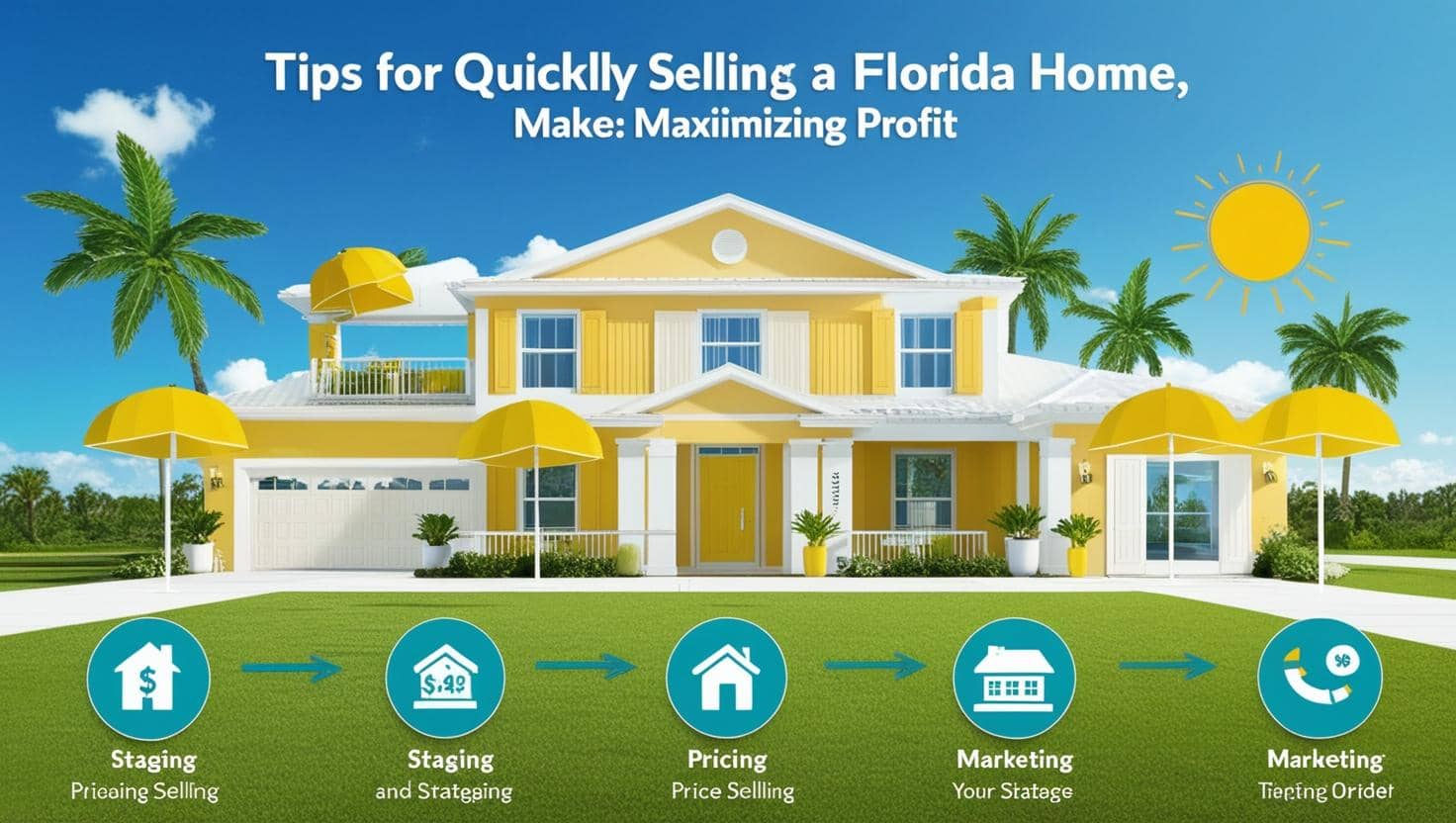Buying your first home is a major milestone, and if you’re considering Florida, you’re in luck! The Sunshine State offers a variety of cities that cater to first-time home buyers with affordable prices, strong job markets, and desirable amenities. As a Realtor in Orlando, I’ve helped many first-time buyers navigate this exciting journey. In this guide, I’ll break down the best Florida cities for first-time homebuyers in 2025, highlighting affordability, lifestyle, and investment potential.
What Makes a City Great for First-Time Buyers?
Before diving into the top cities, let’s outline the key factors that make a location ideal for first-time homebuyers:
 Affordability – Competitive home prices and reasonable property taxes.
Affordability – Competitive home prices and reasonable property taxes.
 Job Market – A strong and growing economy to support long-term stability.
Job Market – A strong and growing economy to support long-term stability.
 Quality of Life – Good schools, parks, entertainment, and community amenities.
Quality of Life – Good schools, parks, entertainment, and community amenities.
 Appreciation Potential – A real estate market with potential for future value growth.
Appreciation Potential – A real estate market with potential for future value growth.
With those factors in mind, here are the top Florida cities for first-time homebuyers in 2025!
1. Orlando: The Best All-Around Choice
 Median Home Price (2024): ~$385,000
Median Home Price (2024): ~$385,000
 Market Trend: Steady appreciation with strong demand
Market Trend: Steady appreciation with strong demand
As an Orlando-based realtor, I may be a little biased—but the numbers speak for themselves! Orlando is a top destination for first-time buyers because of its thriving job market, diverse neighborhoods, and entertainment options. With major employers like Disney, Universal, and a growing tech sector, the city offers solid job security.
Many suburban areas around Orlando, like Winter Garden, Lake Nona, and Clermont, provide a mix of affordability and high quality of life. Additionally, Florida has no state income tax, making it even more appealing for young professionals and families looking to maximize their budgets.
 Why First-Time Buyers Love Orlando:
Why First-Time Buyers Love Orlando:
 Wide range of home prices and styles
Wide range of home prices and styles
 Job growth in tourism, healthcare, and tech
Job growth in tourism, healthcare, and tech
 Access to world-class entertainment and dining
Access to world-class entertainment and dining
2. Tampa: A Booming Job Hub with Affordable Housing
 Median Home Price (2024): ~$375,000
Median Home Price (2024): ~$375,000
 Market Trend: Rapid growth, especially in suburban areas
Market Trend: Rapid growth, especially in suburban areas
Tampa has been one of Florida’s fastest-growing cities, and it continues to attract first-time buyers in 2025. The city’s booming economy, fueled by healthcare, finance, and tech industries, provides plenty of job opportunities. With a vibrant downtown, beautiful waterfront areas, and growing suburbs like Riverview, Wesley Chapel, and Brandon, Tampa offers a mix of urban excitement and suburban affordability.
 Why First-Time Buyers Love Tampa:
Why First-Time Buyers Love Tampa:
 Strong economy with job opportunities in various industries
Strong economy with job opportunities in various industries
 Lower cost of living compared to Miami or South Florida
Lower cost of living compared to Miami or South Florida
 Expanding infrastructure and new home developments
Expanding infrastructure and new home developments
3. Jacksonville: Most Affordable Big City
 Median Home Price (2024): ~$325,000
Median Home Price (2024): ~$325,000
 Market Trend: Stable growth with affordable entry points
Market Trend: Stable growth with affordable entry points
Jacksonville is often overlooked, but it’s one of the best places in Florida for first-time buyers. It offers big-city amenities with one of the most affordable housing markets in the state. The city’s low cost of living, coupled with a strong job market in healthcare, logistics, and finance, makes it an ideal choice.
First-time buyers can find affordable homes in great neighborhoods like Mandarin, Orange Park, and the Southside. Plus, Jacksonville’s coastal location offers access to beautiful beaches without the high price tags seen in South Florida.
 Why First-Time Buyers Love Jacksonville:
Why First-Time Buyers Love Jacksonville:
 One of the most affordable large cities in Florida
One of the most affordable large cities in Florida
 Strong job market with diverse industries
Strong job market with diverse industries
 Proximity to beaches, parks, and outdoor activities
Proximity to beaches, parks, and outdoor activities
4. Lakeland: A Hidden Gem Between Tampa and Orlando
 Median Home Price (2024): ~$320,000
Median Home Price (2024): ~$320,000
 Market Trend: Increasing demand due to affordability and location
Market Trend: Increasing demand due to affordability and location
Located between Orlando and Tampa, Lakeland is a fantastic choice for first-time buyers looking for affordability without sacrificing convenience. With easy access to major highways like I-4, residents can commute to either city for work while enjoying lower housing costs.
Lakeland has a charming downtown, excellent schools, and a growing number of new home communities. Neighborhoods like South Lakeland and Highland City are popular for first-time buyers who want modern homes at a reasonable price.
 Why First-Time Buyers Love Lakeland:
Why First-Time Buyers Love Lakeland:
 Affordable homes with suburban charm
Affordable homes with suburban charm
 Easy access to both Orlando and Tampa job markets
Easy access to both Orlando and Tampa job markets
 Growing community with new developments
Growing community with new developments
5. Port St. Lucie: Best for Future Growth & Investment
 Median Home Price (2024): ~$350,000
Median Home Price (2024): ~$350,000
 Market Trend: Steady appreciation with a growing population
Market Trend: Steady appreciation with a growing population
Port St. Lucie has gained popularity among first-time buyers due to its affordable new construction homes and strong community development. This coastal city offers a relaxed lifestyle, good schools, and increasing job opportunities.
New developments and infrastructure projects are driving home values up, making it a great place to buy now before prices rise further. If you’re looking for a home near the water without South Florida price tags, Port St. Lucie is a solid option.
 Why First-Time Buyers Love Port St. Lucie:
Why First-Time Buyers Love Port St. Lucie:
 Affordable new construction options
Affordable new construction options
 Coastal living without Miami’s high costs
Coastal living without Miami’s high costs
 Strong potential for long-term appreciation
Strong potential for long-term appreciation
Final Thoughts: Where Should You Buy in 2025?
Each of these cities offers unique advantages for first-time homebuyers. If you’re looking for:
 Job opportunities & entertainment → Orlando or Tampa
Job opportunities & entertainment → Orlando or Tampa
 Affordability in a big city → Jacksonville
Affordability in a big city → Jacksonville
 Suburban charm & convenience → Lakeland
Suburban charm & convenience → Lakeland
 Coastal lifestyle & future growth → Port St. Lucie
Coastal lifestyle & future growth → Port St. Lucie
As a local Orlando realtor, I specialize in helping first-time buyers find their perfect home in Central Florida. Whether you’re relocating or already live in the area, I’d love to help you navigate the home-buying process.
 Thinking of buying your first home in Florida? Contact me today Jenny Zamora for personalized guidance!
Thinking of buying your first home in Florida? Contact me today Jenny Zamora for personalized guidance!

 Price It Right from the Start
Price It Right from the Start 





 Stage Like a Pro
Stage Like a Pro 







 Make a Killer First Impression
Make a Killer First Impression 











 Market Like a Pro
Market Like a Pro 






 Timing Is Everything
Timing Is Everything 





 Be Flexible with Showings
Be Flexible with Showings 



 Work with a Skilled Negotiator
Work with a Skilled Negotiator 



















 What to check:
What to check: Pro Tip: Many
Pro Tip: Many 





 Market Trend: Steady appreciation with strong demand
Market Trend: Steady appreciation with strong demand Wide range of home prices and styles
Wide range of home prices and styles
 Thinking of buying your first home in Florida? Contact me today
Thinking of buying your first home in Florida? Contact me today 


